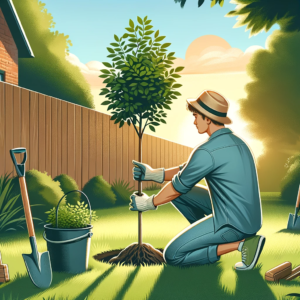In a world filled with constant stimulation, clutter, and the never-ending pursuit of more, the art of minimalism stands as a refreshing counterbalance. It is a lifestyle and philosophy that advocates for simplicity, intentionality, and the conscious reduction of excess in all aspects of life.
Minimalism is not merely about owning fewer possessions or decluttering your physical space; it is a profound shift in mindset that can lead to a more meaningful and fulfilling existence.
The essence of minimalism lies in the pursuit of what truly matters. It encourages us to reevaluate our priorities, detach from materialism, and embrace a life enriched by experiences, relationships, and personal growth.
Minimalism is about finding contentment in the present moment rather than constantly chasing after the next acquisition. In this article, we will explore the art of minimalism and offer practical steps to help you simplify your life.
Whether you are new to minimalism or looking to deepen your understanding of it, these insights will guide you on a journey toward a more deliberate and purposeful way of living. Join us as we uncover the beauty of minimalism and discover how it can transform your life for the better.
The Essence of Minimalism:

Minimalism goes beyond decluttering your physical space; it extends to various aspects of your life, including your mental and emotional well-being.
At its core, minimalism encourages you to ask essential questions: What truly matters to you? What brings you joy and fulfillment? What is excess baggage that you can shed to lead a more purposeful life?
Practical Steps to Embrace Minimalism:
Declutter Your Physical Space: Begin your minimalist journey by decluttering your home. Go through each room and evaluate your possessions. Ask yourself if each item serves a purpose or brings you joy. If not, consider donating, selling, or recycling it. The goal is to surround yourself only with things that add value to your life.
Streamline Your Digital Life: Just as physical clutter can overwhelm, digital clutter can have a similar effect. Organize your digital files, emails, and apps. Unsubscribe from newsletters and notifications that don’t provide value. Consider a digital detox by limiting screen time and being more intentional about your online activities.
Simplify Your Wardrobe: A minimalist wardrobe consists of versatile and essential pieces that you genuinely love. Donate or sell clothing you haven’t worn in months and curate a collection that reflects your personal style and practical needs.
Mindful Consumption: Before making a purchase, ask yourself whether you genuinely need the item or if it’s just a momentary desire. Avoid impulsive buying and focus on investing in high-quality items that will last longer.
Prioritize Experiences Over Things: Instead of accumulating possessions, allocate your resources to experiences that enrich your life. Travel, spend time with loved ones, or pursue hobbies and activities that bring joy and personal growth.
Master Time Management: Minimalism also applies to your schedule. Identify your most important priorities and eliminate time-wasting activities. Create a schedule that aligns with your values and allows for more quality downtime.
Practice Gratitude: A gratitude mindset is fundamental to minimalism. Regularly express gratitude for the people, experiences, and possessions you do have. It fosters contentment and helps you recognize the abundance in your life.
Embrace Minimalist Design: Minimalism extends to your physical environment. Consider adopting minimalist design principles in your home and workspace, emphasizing clean lines, open spaces, and a sense of tranquility.
The Benefits of Minimalism:
By embracing minimalism, you can experience numerous benefits:
Reduced stress and anxiety: A clutter-free environment and simplified life can lead to decreased stress levels and improved mental well-being.
Enhanced focus and productivity: Minimalism can help you prioritize your goals and tasks, leading to increased productivity and a clearer sense of purpose.
Better financial management: Cutting unnecessary expenses and practicing mindful consumption can improve your financial health and savings.
Stronger relationships: As you focus on what truly matters, you’ll have more time and energy for meaningful connections with loved ones.
Greater contentment: Minimalism encourages you to find contentment in the present moment and appreciate the abundance that surrounds you.
Conclusion:
The art of minimalism is a journey toward a more intentional, fulfilling, and purpose-driven life. It invites you to simplify, declutter, and focus on what truly matters.
By adopting practical steps and embracing a minimalist mindset, you can experience the transformative power of minimalism and discover a greater sense of contentment and joy in your everyday existence.
Start your minimalist journey today, and watch as it enriches your life in ways you never imagined.
(Frequently Asked Questions):
Is minimalism only about decluttering physical possessions? No, minimalism is not solely about decluttering physical possessions.
While it does involve simplifying your physical space, it extends to various aspects of life, including your digital life, time management, and even your mindset. Minimalism is a holistic approach to living with intention and purpose.
Do I have to get rid of all my belongings to be a minimalist? No, you don’t have to get rid of all your belongings to embrace minimalism.
The goal is not necessarily to own as little as possible but to own things that add value to your life and align with your priorities. Minimalism is about quality over quantity and intentional consumption.
Is minimalism only for people with a certain income level? Minimalism is not restricted to any specific income level. It’s a mindset and lifestyle choice that can be adapted to fit various financial situations.
In fact, minimalism can help people of all income levels make more mindful financial decisions and live within their means.
Can minimalism help with mental and emotional well-being? Yes, minimalism can have a positive impact on mental and emotional well-being.
By simplifying your life, decluttering your physical and digital spaces, and focusing on what truly matters, you can reduce stress and anxiety, improve your ability to concentrate, and find greater contentment in your daily life.
Minimalism encourages mindfulness and self-reflection, which can lead to improved mental health.




